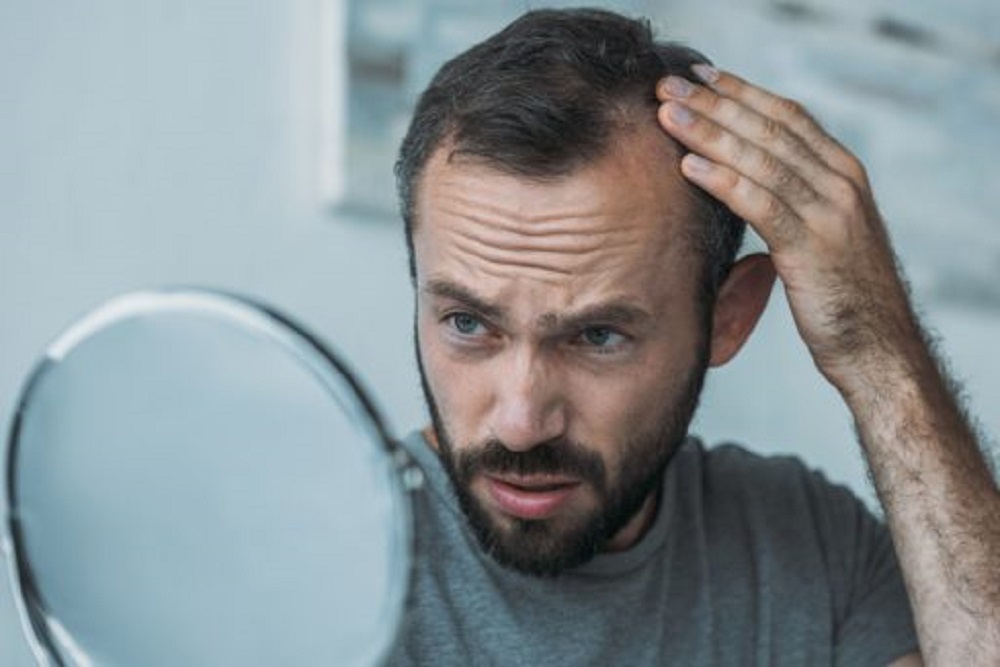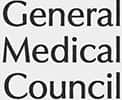
Hair loss and balding are often dismissed as minor problems, but the truth is they can impact confidence and self-esteem and cause considerable distress. If you have started to notice that your hair is thinning or you are beginning to lose it, read on to find out the main causes of hair loss and what helps hair grow back.
The first thing to be aware of if you’re experiencing hair loss is that you’re not alone. Health conditions, including cancer, thyroid disease, or hormonal changes, can also cause hair loss, but most causes aren’t associated with internal or systemic disease.
Unfortunately, while good nutrition may help to slow the process down, most hair loss and thinning are part of the ageing process and predetermined genetic factors.
Although both women and men can experience general hair thinning across their entire head, it’s more common for men to notice hair loss in several areas of the scalp. Signs of balding and thinning hair are often first noticed around the:
• Hairline
• Temples
• Crown
• Back of head
The earlier hair loss is treated, the greater the potential to prevent further hair loss and encourage new hair growth. To monitor the progression of hair loss, it’s a good idea to take photos of your head every week. That way, you can compare photos and be more likely to notice new hair loss in specific areas. You will also be able to better evaluate whether any hair loss treatments you are using have resulted in hair growth.
Before using any chemicals or medications or having injectable treatments or hair transplant surgery, there are natural hair loss treatments you might want to try.
The most popular natural hair loss treatments include:
Scalp massage: Massaging the scalp is a great way to improve blood flow, which can help to promote hair growth. Research indicates that scalp massage may increase hair thickness when performed daily for at least four minutes.
Rosemary oil: In a trial that compared the use of rosemary oil vs minoxidil 2%, after six months, patients who used rosemary oil demonstrated the same level of hair growth.
Supplements: Several supplements have been studied as a treatment for hair loss. The supplements that were shown in clinical studies to help increase or thicken hair growth include:
• Pumpkin seed oil — A placebo-controlled trial showed that taking 400mg of pumpkin seed oil daily for six months increased hair growth for men with male pattern baldness.
• Saw palmetto — The use of a daily 320 mg supplement of saw palmetto (Serenoa) was studied for two years in men with male pattern baldness. The clinical trial results for the treatment of male androgenetic alopecia showed new hair growth, specifically in the crown area and back of the scalp.
• Vitamin D — Research into hair loss due to alopecia areata has indicated that low vitamin D levels may be linked to hair loss.
• Vitamin B7 — A deficiency of Vitamin B7 has been associated with hair loss, and research indicates that vitamin B7 Biotin supplements could promote hair growth.
• Vitamin E — Clinical trials have shown that vitamin E Tocotrienol supplements reduce hair loss and increase hair growth for people with alopecia.
Nutritional deficiencies and hair loss have been extensively studied and show diet is a vital part of keeping your hair strong and healthy. Although taking supplements may seem like the easiest way to add essential vitamins and nutrients to your diet, research indicates that eating food high in vitamins can be more effective for health.
Here is a list of some of the best foods for hair growth based on the nutrients they contain that are essential for healthy hair:
| Fruit | Vegetables | Fish | Meat | Other Sources |
| Berries | Beans | Salmon | Chicken | Nuts and seeds |
| Bananas | Sweet potatoes | Tuna | Turkey | Soy products |
| Citrus fruits | Spinach | Mackerel | Beef liver | Eggs |
| Avocados | Broccoli | Sardines | Greek yogurt | |
| Guava | Mushrooms | Oysters | Cheese |
You will have probably seen adverts for numerous shampoos, conditioners, and hair products that claim to treat hair loss and reverse baldness. However, very few options have been shown in clinical studies to successfully treat hair loss.
One exception is hair products that contain between 2% and 5% minoxidil, which has been clinically proven to reduce hair loss. However, it must be used consistently to sustain hair growth and prevent hair loss. Several side effects with minoxidil, including dermatitis (itching, blistered, cracked skin), headaches, and hypertrichosis (excessive hair growth on the body), have been reported during clinical trials.
A hair transplant is a procedure that involves taking healthy hair follicles from one area of the scalp and moving them to another area where hair is thinning or missing. There are two methods for hair transplantation: follicular unit extraction (FUE) and follicular unit transplantation (FUT). The key difference between the two most popular hair transplant procedures are:
• During the FUE hair transplant procedure, individual follicles are removed from the head using a microscopic punch tool.
• Stitches are unnecessary, and this technique only leaves a tiny scar that should become undetectable over time.
• Recovery is faster, generally a couple of days.
• The FUE is typically more expensive than the FUT.
• During the FUT procedure, a strip of skin and tissue from the scalp containing hair follicles is removed.
• Stitches are used to close the incision, leaving a linear scar.
• Recovery time is generally between 10 to 12 days.
Both techniques used for hair transplant procedures carry risks and complications. Due to the requirement for incisions, there is potential for infection and subsequent complications such as necrosis (skin death) to occur, among other risks.
Selecting a doctor or surgeon with experience and working in a Care Quality Commission (CQC) registered clinic or hospital can reduce the risk of complications, but even with the best practitioners and facilities, complications may happen.
Not keen on going under the knife? Advancements in hair loss treatments have meant several non-invasive options offer an alternative to hair transplants. Here are the latest hair loss treatments you can utilise at home and in a clinic.
Low-level laser therapy (LLT) is a clinically proven treatment for hair growth and hair loss that can be used at home. Numerous devices are available, but the Hairmax® Lasercomb/Laserband and the Capillus® laser cap are FDA-approved.
Clinics offer treatments that claim to stimulate hair growth and prevent hair loss. One of the most widely researched and longest-available treatments is platelet-rich plasma (PRP) therapy.
First discovered in the early 1940s, PRP therapy has since been used to treat many different medical conditions, such as tissue damage, osteoarthritis and ligament injuries. The application of PRP therapy for hair loss has been subject to clinical trials to evaluate its effectiveness. In 16 studies, it was shown that the majority of participants receiving PRP therapy experienced hair growth and an increase in overall hair density.
Depending on what caused your hair loss will affect how effective hair loss treatment will likely be. Sudden hair loss or hair loss in patches may signal a health condition, and you should always seek medical attention if this occurs.
There is a natural cycle to hair growth that happens in four main stages:
1. Anagen: This is the active growth phase where the hair is produced.
2. Catagen: The hair stops growing and the follicle begins to shrink.
3. Telogen: The hair rests and eventually falls out.
4. Exogen: The old hair sheds and is replaced by new hair growth.
About 9% of hair follicles are in the telogen phase at any given time. Factors like inflammation, hormones, stress, poor nutrition, lack of sleep, and certain medications can push hair from the anagen phase to telogen.
The best time to get a hair loss treatment is when you start feeling insecure about your thinning hair. The sooner you start treatment for hair loss, the better. Remember, it takes time to see results with hair loss treatments, so don’t live with the problem and let your confidence suffer, especially when solutions are available.

Unless you are seeking a doctor to perform hair transplant procedures, looking for the best hair loss clinic will eliminate aesthetic clinics that could have practitioners with more experience in delivering non-surgical treatments such as PRP therapy.
With the lack of regulation around who can perform many aesthetic treatments, only a few aesthetic clinics are doctor-led. If the clinic claims to be doctor-led, you should be able to find the name of the doctor on their site. You can then check the General Medical Council medical register for more information about their status and training.
Harley Street MD is a London aesthetic and health clinic founded and led by Dr Chia Tan, a UK GMC registered doctor who is also a member of several professional organisations, including the Royal College of Surgeons (MRCS) and the British College of Aesthetic Medicine (BCAM). We do not provide hair transplant surgery, but we do provide non-surgical PRP hair therapy. Out of all the hair loss treatments, PRP hair therapy has virtually no risk compared to other pharmaceutical-based topical and oral medications for hair loss treatment.
If you are looking for a hair transplant procedure and want to find the best hair loss clinic, always check that the clinic is registered with the Care Quality Commission (CQC). You can check a clinic’s latest reports and ratings to determine the level of service they provide. All hair loss clinics providing hair transplant procedures should be registered.
There are so many myths about the causes of hair loss. Here are some of the most ridiculous myths we’ve heard about hair loss and hair loss treatments.
1. Hair Loss Is Caused by Too Much or Too Little Washing
Many people believe this, but there is no proof to back it up! Washing your hair too much or not washing it enough does not affect hair loss. It’s normal to have some hair fall in the shower when washing your hair, but this is usually nothing to worry about. It’s all part of the natural hair growth cycle and your hair washing habits won’t stop genetic hair loss.
2. Hair Loss Treatment Doesn’t Work
The trouble with treating hair loss is it has many different causes. Individuals respond very differently to certain hair loss treatments, so what may be effective for one person has no success for another person. Treating hair loss is trial and error. However, experts will confirm that certain treatments work for some patients.
There is a lot of scientific evidence behind one of the latest treatments, platelet-rich plasma therapy (PRP). The injections, which release proteins and hormones, are already used elsewhere in medicine and found to be successful if taken regularly to treat most types of hair loss.
3. Hair Loss Treatment Is For Men
Hair loss is often seen as a male-dominated concern, but many women suffer from this condition. Women may notice their hair thinning as they grow older or suffer from female pattern baldness, as well as conditions such as alopecia, which cause baldness. Hair loss treatment is suitable for any gender.
Below, we have referenced all the research and study references we used — in addition to our internal research —. Most references have an external link to the scientific publication. We work hard to bring you the most recent, impartial, factual, and evidence-based information to help you make informed decisions.
• Hair Loss. From: Mayo Clinic
• Koyama T, Kobayashi K, Hama T, Murakami K, Ogawa R. Standardized Scalp Massage Results in Increased Hair Thickness by Inducing Stretching Forces to Dermal Papilla Cells in the Subcutaneous Tissue. Eplasty. 2016 Jan 25;16:e8. PMID: 26904154; PMCID: PMC4740347. From: NIH
• Panahi Y, Taghizadeh M, Marzony ET, Sahebkar A. Rosemary Oil vs minoxidil 2% for the Treatment of Androgenetic Alopecia: A Randomized Comparative Trial. Skinmed. 2015 Jan-Feb;13(1):15-21. PMID: 25842469. From: NIH
• Cho YH, Lee SY, Jeong DW, Choi EJ, Kim YJ, Lee JG, Yi YH, Cha HS. Effect of Pumpkin Seed Oil on Hair Growth in Men with Androgenetic Alopecia: A Randomized, Double-Blind, Placebo-Controlled Trial. Evid Based Complement Alternat Med. 2014;2014:549721. doi: 10.1155/2014/549721. Epub 2014 Apr 23. PMID: 24864154; PMCID: PMC4017725. From: NIH
• Rossi A, Mari E, Scarno M, Garelli V, Maxia C, Scali E, Iorio A, Carlesimo M. Comparative Effectiveness of Finasteride vs Serenoa Repens in Male Androgenetic Alopecia: A Two-Year Study. Int J Immunopathol Pharmacol. 2012 Oct-Dec;25(4):1167-73. doi: 10.1177/039463201202500435. PMID: 23298508. From: NIH
• Almohanna HM, Ahmed AA, Tsatalis JP, Tosti A. The Role of Vitamins and Minerals in Hair Loss: A Review. Dermatol Ther (Heidelb). 2019 Mar;9(1):51-70. doi: 10.1007/s13555-018-0278-6. Epub 2018 Dec 13. PMID: 30547302; PMCID: PMC6380979. From: NIH
• Patel DP, Swink SM, Castelo-Soccio L. A Review of the Use of Biotin for Hair Loss. Skin Appendage Disord. 2017 Aug;3(3):166-169. doi: 10.1159/000462981. Epub 2017 Apr 27. PMID: 28879195; PMCID: PMC5582478. From: NIH
• Beoy LA, Woei WJ, Hay YK. Effects of Tocotrienol Supplementation on Hair Growth in Human Volunteers. Trop Life Sci Res. 2010 Dec;21(2):91-9. PMID: 24575202; PMCID: PMC3819075. From: NIH
• The 13 Best Foods for Hair Growth. From: Healthline
• Top 10 Foods for Healthy Hair. From: WebMD
• Suchonwanit P, Thammarucha S, Leerunyakul K. Minoxidil and Its Use in Hair Disorders: A Review. Drug Des Devel Ther. 2019 Aug 9;13:2777-2786. doi: 10.2147/DDDT.S214907. Erratum in: Drug Des Devel Ther. 2020 Feb 10;14:575. doi: 10.2147/DDDT.S247601. PMID: 31496654; PMCID: PMC6691938. From: NIH
• Natarelli N, Gahoonia N, Sivamani RK. Integrative and Mechanistic Approach to the Hair Growth Cycle and Hair Loss. J Clin Med. 2023 Jan 23;12(3):893. doi: 10.3390/jcm12030893. PMID: 36769541; PMCID: PMC9917549. From: NIH
• Mościcka P, Przylipiak A. History of Autologous Platelet-Rich Plasma: A Short Review. J Cosmet Dermatol. 2021 Sep;20(9):2712-2714. doi: 10.1111/jocd.14326. Epub 2021 Jul 14. PMID: 34214233; PMCID: PMC9291029. From: NIH
• Information for Patients Having a Platelet-Rich Plasma (PRP) Injection. From: NHS
• Nestor MS, Ablon G, Gade A, Han H, Fischer DL. Treatment Options for Androgenetic Alopecia: Efficacy, Side Effects, Compliance, Financial Considerations, and Ethics. J Cosmet Dermatol. 2021 Dec;20(12):3759-3781. doi: 10.1111/jocd.14537. Epub 2021 Nov 6. PMID: 34741573; PMCID: PMC9298335. From: NIH.







